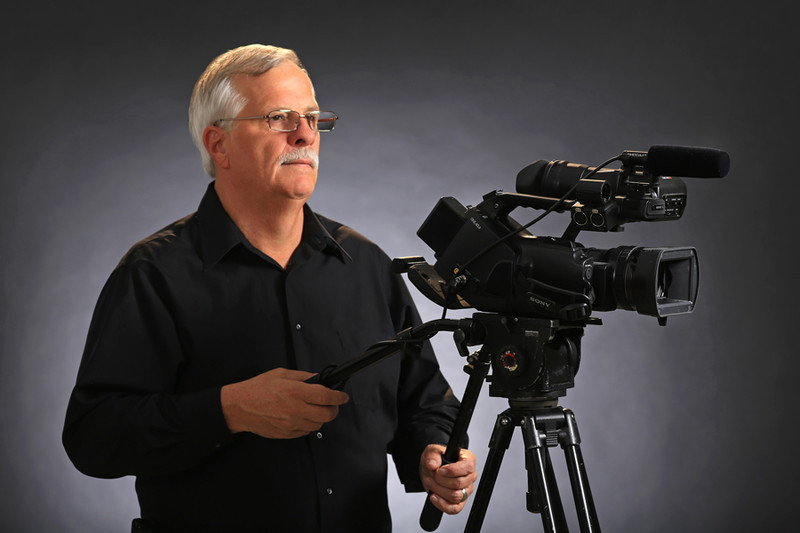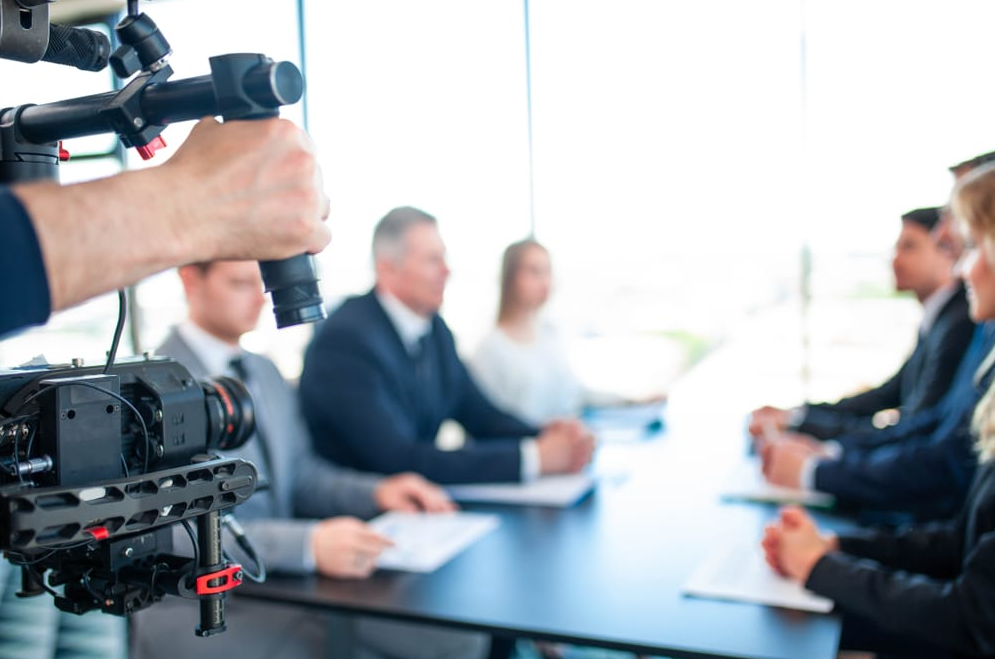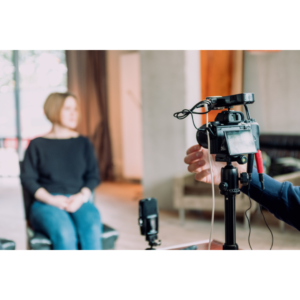The Duty of Lawful Videography in Depositions and Tests
Legal videography has arised as an essential device in both depositions and tests, supplying a diverse approach to recording witness testaments. By catching not only the talked word however likewise the subtleties of non-verbal interaction, this medium enhances the reliability of testimonies and maintains important proof for future proceedings (legal videography). As lawyers progressively recognize its worth, it triggers a deeper exam of just how these visual documents can affect juror perceptions and test outcomes. What ramifications might these growths hold for the future of lawful practice?

Importance of Lawful Videography
Lawful videography plays an essential role in the documents and discussion of depositions and trials. This specific area combines technological abilities with legal understanding to produce a trusted record of proceedings that can considerably affect case results. The appearance of legal videography boosts the understanding of witness testimony, enabling jurors and judges to observe not just the spoken words however likewise the temperament, feelings, and body movement of the witnesses.
In addition, lawful videography provides an objective account of occasions, decreasing the potential for false impression that can take place with written records alone. This aesthetic paperwork functions as a crucial tool throughout trial discussions, promoting a more clear and more persuasive narrative for both complainants and offenders. In addition, the ability to replay video segments during court process enables lawful groups to emphasize essential points, enhancing their disagreements efficiently.
The significance of lawful videography extends past the court; it additionally plays a crucial duty in preserving proof for future reference, whether for allures or further lawful activity. Therefore, its combination right into the lawful process is crucial for ensuring a reasonable and accurate depiction of the realities, ultimately adding to the pursuit of justice.

Refine of Legal Videography
While capturing the subtleties of depositions and tests, the process of lawful videography entails a number of important steps that guarantee premium, accurate recordings. An expert lawful videographer prepares by evaluating the case products and understanding the details demands of the deposition or trial. This preparation includes familiarizing themselves with the participants and the context, which helps in recording important details.
On the day of the recording, the videographer sets up the essential devices, which commonly consists of high-def video cameras, microphones, and correct lighting. Making certain optimal angles and audio top quality is vital, as it directly influences the effectiveness of the recording. The videographer connects with attorneys and participants to develop protocols, making sure that everybody comprehends the recording process.
Throughout the deposition or trial, the videographer thoroughly videotapes the procedures, paying close attention to both verbal and non-verbal signs. This consists of recording the behavior and reactions of witnesses and attorneys. After the session concludes, the videographer might modify the video for clarity and compliance with legal standards, creating a final item that properly shows the procedures for future recommendation and usage in legal contexts.
Benefits in Depositions
The incorporation of videography in depositions provides numerous advantages that improve the general process of gathering proof. One main benefit is the capacity to capture witness testaments with aesthetic and auditory fidelity, offering useful link an extra accurate representation of the witness's temperament, tone, and body movement. This multidimensional technique enables attorneys and juries to analyze trustworthiness a lot more successfully than standard written records alone.
Furthermore, videographed depositions serve as an effective tool for preserving testimony. Ought to a witness come to be unavailable for trial, their videotaped deposition can be played in court, making certain that their evidence continues to be easily accessible and appropriate. This facet considerably lowers the risk of shedding vital details that could influence situation outcomes.

Finally, videography enhances the total professionalism of the deposition procedure, instilling self-confidence in clients concerning the thoroughness of their legal depiction (legal videography). By leveraging innovation, legal specialists can dramatically improve the efficiency of depositions
Influence on Trials
In many trials, the integration of videography can dramatically influence the discussion of evidence and the jury's assumption. Legal videography captures witness testimonies and important evidence in a vibrant layout, allowing jurors to engage with the product on numerous degrees. This visual element boosts the storytelling element of a test, offering context and emotional resonance that typical text-based proof may lack.
Moreover, video recordings can serve as effective tools for impeachment throughout cross-examination. When discrepancies occur between a witness's prior statements and their court testimony, video evidence supplies an objective referral that can guide jurors' point of views. This immediacy and quality can boost the integrity of a celebration's story while at the same time weakening opposing debates.

Future Trends in Legal Videography
As we look toward the reference future of legal videography, numerous arising trends promise to reshape its role within the court room. One significant trend is the assimilation of fabricated knowledge (AI) in video clip evaluation and editing. AI can improve the procedure of recognizing vital minutes in videotaped depositions, permitting lawyers to swiftly access pertinent material, therefore enhancing efficiency in instance prep work.
Furthermore, the rise of digital truth (VR) and enhanced reality (AR) modern technologies is expected to transform how jurors experience proof. legal videography. By immersing jurors in a substitute environment, these innovations can provide an extra extensive understanding of intricate scenarios, causing more enlightened considerations
Furthermore, the boosting demand for remote depositions, increased by the COVID-19 pandemic, will likely continue. Legal videographers will need to adjust to brand-new software and platforms to make sure high-quality recordings in digital settings.
Lastly, the expanding focus on information protection will require stricter procedures for keeping and sharing video evidence. As the lawful landscape advances, legal videographers must stay abreast of these fads to keep their significance and effectiveness in the judicial procedure.
Final Thought
In summary, lawful videography offers a critical function in the judicial process, improving the honesty of depositions and trials. As technology continues to advance, legal videography is poised to additional transform its duty within the lawful landscape.